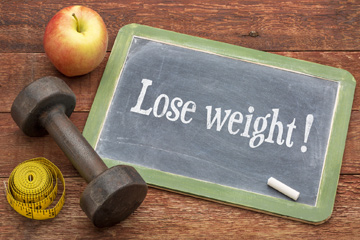A low calorie diet and regular exercise can help you shed pounds, but there is much more to succeeding in your weight loss journey. You may know about things that you should do, but not about the things that you shouldn’t do to succeed with weight loss. These mistakes can pause or upset your progress. Every person is unique and some weight loss methods that work for another person may not be effective for you. It’s important to work you’re your doctor to craft a proper plan to complete your weight loss journey successfully.
Weight loss is much more than reducing calories, it depends on your sleep, stress, etc. You also need to watch out and not do anything that can set you back. Here are some common mistakes to avoid when trying to lose weight:
- Not having a Solid Plan: When you decide to lose weight, not having a realistic plan is a mistake. You should be ready to meet challenging situations. Start off with a few specific, actionable goals for the first week. Once you become an expert in that, keep adding on. These action steps will gradually become lifelong habits.
- Buying items labeled ‘fat-free’, ‘gluten-free’, or ‘sugar-free’: Knowing the actual ingredients in any food item you buy is necessary. Make an informed decision after reading the label. For instance, a fat-free flavored drinking yogurt may contain as much sugar as a chocolate bar, which means it is not healthy at all. So, shop wisely.
- Drinking your Calories: Fruit juices, beer, wine, etc. are full of carbs and calories that will leave you hungry. Your brain doesn’t react to liquid calories the same way as they it does to calories from food. Drink water, but not sweetened drinks that don’t provide any nutrients. Smoothies and prepackaged juices are usually loaded with extra sugar, harmful chemicals, and preservatives, and will work against weight loss, besides being bad for your health.
- Skipping Meals: Eating patterns like the frequency and distribution of eating the entire day can significantly impact weight loss progress. Many people think that reducing calorie intake by skipping meals can speed up the weight loss process. The truth is that skipping meals can lead you to overeat at the next meal since you are even hungrier. It can also negatively impact your blood sugar levels, metabolism, and energy level.
- Not Getting Enough Sleep: Losing sleep while dieting can reduce the amount of weight lost and encourage overeating (www.sleepfoundation.org). Sleep deprivation can lead to the levels of leptin (the fullness hormone) to go down and overproduction of ghrelin, the hunger hormone. When you don’t get enough sleep, you will feel hungry and will eat more, leading to weight gain. Make sure you get at least 7 to 9 hours of sleep.
- Not Getting Enough Protein: If you are trying to lose weight, including protein in your diet is necessary. Protein reduces your appetite, increases the feeling of fullness, and boosts your metabolic rate. To optimize weight loss, ensure your every meal contains high-protein food.
- Not Consuming Enough Fiber: Incorporating fiber-rich foods in your diet is a crucial element in weight loss. Soluble fiber is helpful because it absorbs water, becomes gel, and then moves slowly through your digestive system, making you feel full for a long time. Fiber is also believed to slow fat absorption and keep blood sugar levels in check, both of which help your body store less fat.
- Not Staying Hydrated: Not staying hydrated can impact how your body burns fat. Dehydration encourages excessive calorie intake and slows down your metabolism. It can make you tired and restrict you from being active.
- Not Exercising or Exercising too much: While restricting calories, not exercising at all can lead to loss of muscle mass and lower metabolism. Exercise helps burns fat, prevents your metabolism from slowing down, and minimizes the amount of lean muscle mass you lose. On the other hand, over exercising is unhealthy as it can lead to severe stress as you are forcing your body to burn more calories.
- Eating too many or too Few Calories: You need to burn more calories than you consume. Even if you eat healthy caloric-rich foods like nuts and cheese, it’s important to watch portion size. On the other hand, too little calorie consumption can make you hungry and reduce your metabolism and muscle mass. Studies have found that a low-diet providing less than 1000 calories per day can lead to muscle loss and significantly slow down metabolism.
Weight loss is not just about reducing calorie intake. It also depends on your sleep patterns, exercise regimen, and stress levels, as well as factors beyond your control, like genetics. Avoiding these weight loss mistakes and following the rules most of the time is critical to succeed. Also, don’t forget to set realistic goals- this is important to help you stay motivated and on track.
